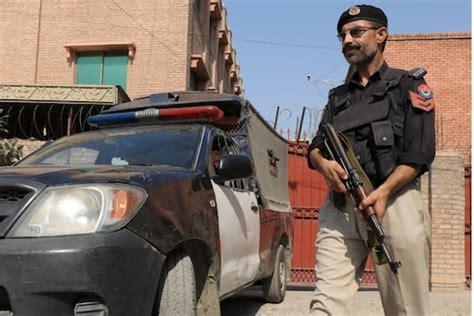
Terror Strikes Bajaur: A Call for Increased Security Measures in Pakistan
On July 30th, the Bajaur District witnessed a devastating suicide bombing that claimed at least 54 lives and left nearly 200 wounded. Soon after, the ISIS-Khorasan, a terrorist group based in neighboring Afghanistan’s Nangarhar province, claimed responsibility for the attack. Earlier in the day, nearly 1,000 members of the Jamiat Ulema-e-Islam-F (JUI-F) party had gathered for a political rally headed by politician Fazlur Rehman. While Rheman was not present at the event, hundreds of families were devastated by the horrific incident which stands as one of the most brutal acts of violence in the region since 2014.
In the aftermath of the bombing, leaders and institutions nationwide condemned the attack. Joseph Borrel, the EU’s high representative for foreign affairs, labeled the incident as “an attempt to weaken democracy”, designed to “instill terror”. Such attacks are not new for the JUI-F party, and officials, including Shams uz Zaman, the deputy general secretary of JUI-F’s Bajaur branch, blamed the government for inadequate security, claiming that “The state has not fulfilled its responsibilities”.
Political tensions have been building up in Pakistan over the past few months. As the country gears up for governmental elections this coming fall, concerns about potential election manipulation and unfair practices have intensified. The JUI-F party, led by cleric Fazl-ur-Rehman, is a Deobandi Sunni political party in Pakistan that has been shunned by the Islamic State (IS, more commonly known as ISIS) for being an Islamic group that also supports secular, democratic governments and the military. While it rarely occupies a majority of parliament, it controls a significant portion of schools and mosques in northern and western Pakistan, giving it crucial power over the country’s mobility. It is also known to have outspokenly supported the Taliban government, who are the ideological enemies of ISIS-K. In fact, since the Taliban seized control of Afghanistan, ISIS-K has significantly increased the violent impact of their attacks, killing at least 670 people and injuring 1,200 during more than 283 offensives. These attacks are no longer limited to Afghanistan, as the ISIS-K group is now working to undermine the Taliban by attacking its allies in Pakistan, such as the JUI-F. Despite the violent attack, leaders of the Jamiat Ulema Islam party such as Abdul Rasheed have declared that “such attacks cannot deter our resolve”.
Pakistan’s efforts to protect its people from increased attacks have been underwhelming. In the midst of financial and political struggles, too few troops have been deployed to the Afghanistan border, and existing projects such as their newly built border fence have yielded unforeseen negative results. In addition, Pakistan’s selective approach to cooperating with select jihadi groups within its territory has proven counterproductive, exacerbating the situation.
Given the polarized nature of the upcoming elections, terrorist attacks of comparable scale are unfortunately foreseeable in the near future. Yet, the Pakistani Government can adopt viable steps to address the issue. Enhancing intelligence systems to predict future attacks, bolstering security at political gatherings, and fostering unity among political parties to counter radical opposition represent plausible measures to protect the nation from further violence.
Though Pakistan grapples with an economic downturn, cooperation with foreign nations can offer support in combating terrorism. Sharing intelligence and modern technology with Pakistan could significantly contribute to the global fight against terrorism, encouraging more nations to extend their resources to Pakistan. Engaging foreign powers as intermediaries may also facilitate peace agreements with neighboring countries and extremist groups like the TTP and ISIS-K.
The tragic attack in Bajaur must serve as a wake-up call for the Pakistani government to acknowledge the urgency of the situation. Through unwavering determination, a mobilization of resources, and international support, the nation can better prevent terror attacks and lay the foundation for a safer society for generations to come.
Source » theowp.org





